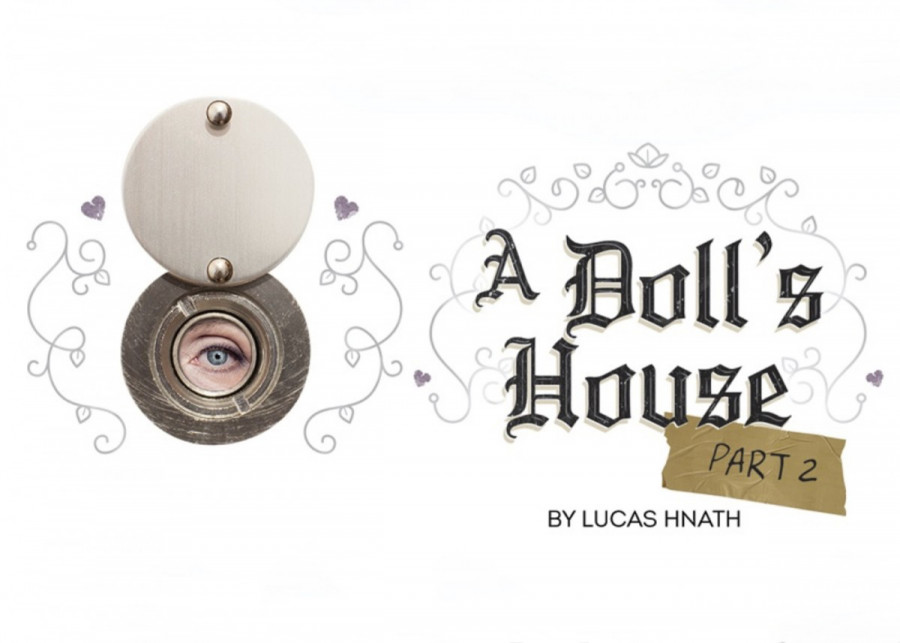Theatre Review: “A Doll’s House, Part 2” Revolves Around the Theme of Motherhood
An Imagined Continuation of Henrik Ibsen’s 19th Century Play
Have you ever left something thinking it was no good for you? That it no longer serves your growth and keeps you stagnant? Maybe it was a friendship, a relationship, an extracurricular … or maybe it was your home.
What happens when you go back to it?
Meet Nora, the main character of our homecoming. She is a force to be reckoned with, mighty in her speech and although morally ambiguous, I find myself rooting for her.
The director of A Doll House, Part 2, Caitlin Murphy, writes “it is rare to find a play in which you can agree and disagree with everyone.”
The original three-act play written by Norwegian playwright Henrik Ibsen centers around a seemingly ordinary family—Nora, Torvald, her husband who is a bank lawyer, and their children. Torvald is condescending and sees Nora as a pretty little thing who exists solely to compliment him. After a series of events, Nora cannot disallude herself to Torvald’s true nature any longer and decides to leave. She asks her nanny to take care of her children and slams the door as she leaves, hoping to attain independence and fulfillment.
A Doll’s House, Part 2 , playing now at the Segal Centre for Performing Arts, begins when Nora, played by Sarah Constible, returns home after 15 years to find the consequences of her leaving still apparent.
The dialogue filled the empty space of the set; a mere two chairs onstage let the play be carried by the strength of its four actors. The minimalist design led the focus to be on character relations with a majority of the play occurring in the living room.
Here, the audience witnesses many exchanges, between child-bearer and caregiver, wife and husband, and mother and daughter. Insightful philosophical quips about the duties of these roles are accompanied with comical mockery and outlandish swearing, which makes them all more palatable.
Nora’s childhood nanny, Anne Marie, ponders how hard it must have been for Nora. “The world is a hard place…” she muses, to which Nora retorts “So we’re trained to think!” Nora excitedly paces back and forth, claiming the years have changed her. She now walks to her own tune, a self-made writer publishing books on women’s rights.
Nora’s success is quickly shoved under the carpet when she realizes the sacrifices her nanny made to clean up her mess, abandoning her own children to raise Nora’s in her absence.
Alongside privilege, topics that still hold pertinence today such as the double standards of gender in relation to family were visited in A Doll’s House, despite the play taking place in the nineteenth century.
As the play edges forward, it becomes apparent no character was left unaffected by the mother’s absence. Nora’s daughter, played by Ellie Moon, says that it was for the best that Nora left, as it was this incident that blessed her with “the maturity of children who have to wrestle with difficult truths at an early age.”
But the theme of family is perhaps not the most striking; the play exhibits how we all wrestle with what we owe to ourselves and what we owe to others.
“It’s so freaking hard to be with people,” sighs Torvald, Nora’s husband, played by Oliver Becker.“He didn’t want to love something to the point you have to kill it,” says Anne-Marie, Nora’s nanny.
The audience continuously questions if Nora made the right decision; leaving to take charge of her life instead of living in her husband’s shadow.
It is Nora’s daughter that poetically brings to light these questions: “Imagine a future where everyone is just leaving each other. Never taking time to settle into something slow. Never finding a home, a place to rest,” she muses. “So deeply unsatisfying…this future where we’re all just nomads.”
As Nora and Torvald attempt a civilized conversation, they share their differing views on the failure of their marriage. They agree that all avoidance made them into liars, and that a true marriage requires “sticking our faces in the shit.”
However, when Nora claims she has no regrets, their almost romantic chirpings escalate to full on accusations. The two chairs go flying across the stage and they walk in circles screaming “Fuck you!!”
Still, at the end of their argument, exhausted and stricken, Nora says softly “I am my best self when I am by myself…but it is nice to sit with you.”
I left the play with many ponderings; a woman’s place in society, a parent’s responsibility to their children and most importantly, this dance we do between our responsibilities to ourselves and our duties to others.
If a Doll’s House taught me anything, it is that nobody is exempted from this dance of responsibilities we are pulled into. No man is an island; it is a blessing to be able to sit down with someone at the end of the day. Shedding ourselves of responsibility just until we can see the bottom of our tea cup is a blissful momentary break before we get back up to dance again.
The next play to be shown at the Segal Centre for Performing Arts is Old Stock: A Refugee Love Story. It will be playing until December 19.






